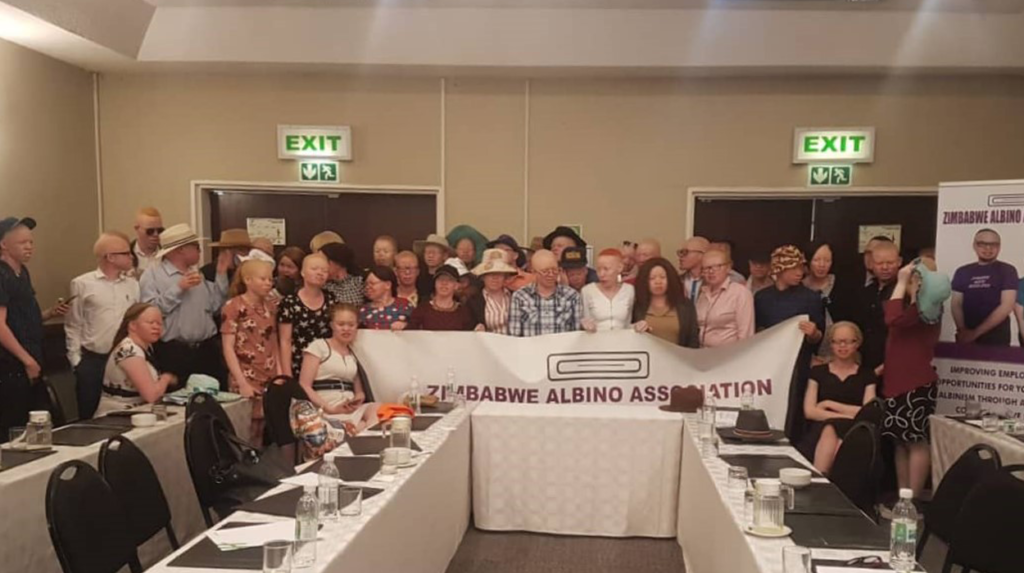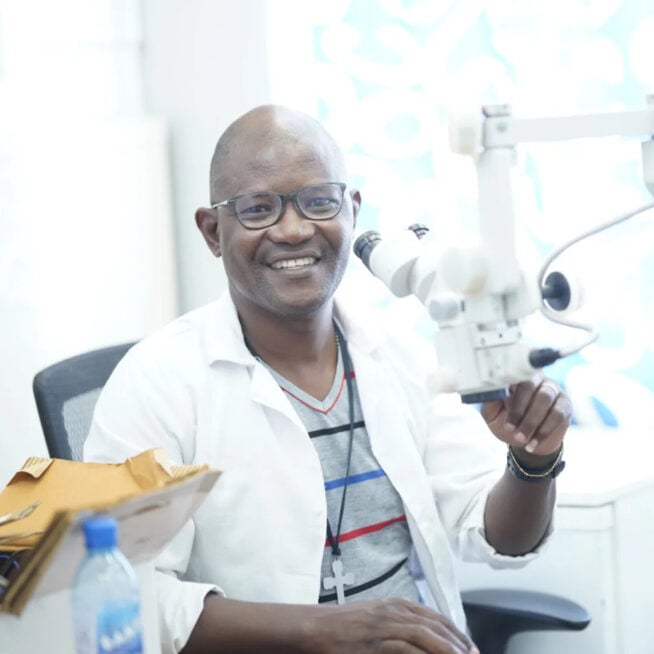Want to transform lives with us? Stay in touch and hear about our news, activities and appeals by email!
New project to help Zimbabwean youth with albinism access eye health and employment

We’ve launched a new project in Zimbabwe to boost opportunities for people living with albinism, improving access to eye health services and employment. This project is funded by Standard Chartered through their Seeing is Believing programme (open link in new tab) programme to tackle avoidable blindness.
People with albinism have a reduced amount of the pigment melanin, affecting hair and skin colouring, as well as eyesight. In Zimbabwe, people with albinism routinely face stigma and discrimination, as well as exclusion from health services, employment, education and social opportunities.
A very high proportion of people with albinism also have a visual impairment, but specialised eye health services, including low vision devices, are often too expensive or difficult to access. These factors all contribute to high school drop-out rates among children with the condition, leading to poor employment prospects. Youth with albinism often have low self-esteem, which makes them unwilling to approach employers. This project will provide self-esteem and confidence boosting seminars for all 50 targeted youth to help remove effects of discrimination on esteem. Careers events will then be held with persons with albinism who are already employed, to show through role modelling that opportunities do exist. Our new 1-year project, delivered in partnership with Zimbabwe Council for the Blind (open link in new tab) and the Zimbabwe Albino Association (ZIMAS) (open link in new tab) and the is the first of its kind in Zimbabwe and aims to support 50 young people with albinism, aged 18-35, by:
- Providing eye screening and low vision devices.
- Providing job skills assessments.
- Providing skills training, including vocational training, such as carpentry and metal work, and soft skills training to boost self-esteem.
CBM is also working closely with the Zimbabwe Albino Association and the Zimbabwe Council for the Blind to ensure that support for people with albinism continues in the future.
Image: youths with albinism attending an induction workshop for the new programme, in Harare, Zimbabwe.




